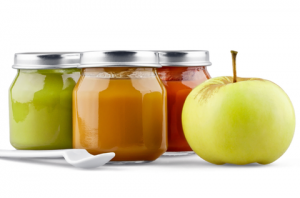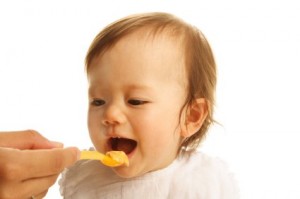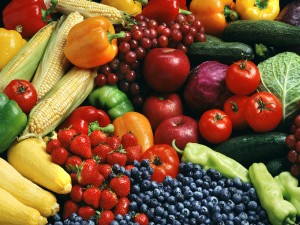Eating Clean : Benefits of Organic Baby Food
Many parents are looking at using organic baby food to better provide a baby with good nutrition and minimize some of the risks of using today’s prepared foods that can contain some unnatural and potentially unhealthy elements. For those who are assessing the benefits of organic food for their youngest family members, a brief review of some established nutritional and food science can show exactly why buying organic can help your baby.
Organic Baby Food and Pesticides
Today’s modern farms often use a lot of pesticides, which can get into the foods that find their way to the dinner table or to the baby’s high chair. Larger farms are often more likely to use massive amounts of pesticides. One thing that organic baby food addresses is the use of these
chemicals, which can include carcinogens and other dangerous items.
Organic food is regulated to exclude the use of potentially harmful pesticides. Public resources show which types of produce are most vulnerable to pesticide absorption, but those who want the least of these chemicals in their food will buy exclusively organic baby food and organic produce.
Organic Baby Food, Antibitoics and Hormones
Another major element of non-organic or traditional foods is antibiotics. Animals in non-organic farms are often treated extensively with various kinds of antibiotics, and these drugs can also make their way through the food chain in dairy products or meats. Organic baby food will generally have less of this kind of element.
Another issue is growth hormones. Industry resources show that farms often treat cows with bovine growth hormone. Scientists have theorized that these hormones, which get passed through the milk, can have negative effects on human development.
Other Reasons to Buy Organic Baby Food
Most food scientists and consumer advocates would agree that organic baby food goes through more intense regulatory processes than “regular” or non-organic food. In some cases, organic food has simply become the higher tier of a dual food product system where non-organic is progressively loosely regulated, more dangerously produced and mysterious to the food shopper. For example, when farms are feeding animals with food that includes animal parts, shoppers tend to recoil and select food that is regulated away from these more extreme agricultural practices. Organic food becomes a primary way to make sure that food is reasonably produced, processed and controlled. A growing part of the debate around organics is focused on how to give all American access to organic food choices.
Parents can consider all of the above when looking for the best food choices for a young infant. Another option is to make your own baby food, avoiding the processing that occurs with conventional packaged infant foods. Families can buy local, lowering the amount of treatment and shelf time for fresh foods. These strategies allow parents to take control of what they are feeding their new baby and provide for a healthier future for their young ones.
*excerpt from www.wahm.com










